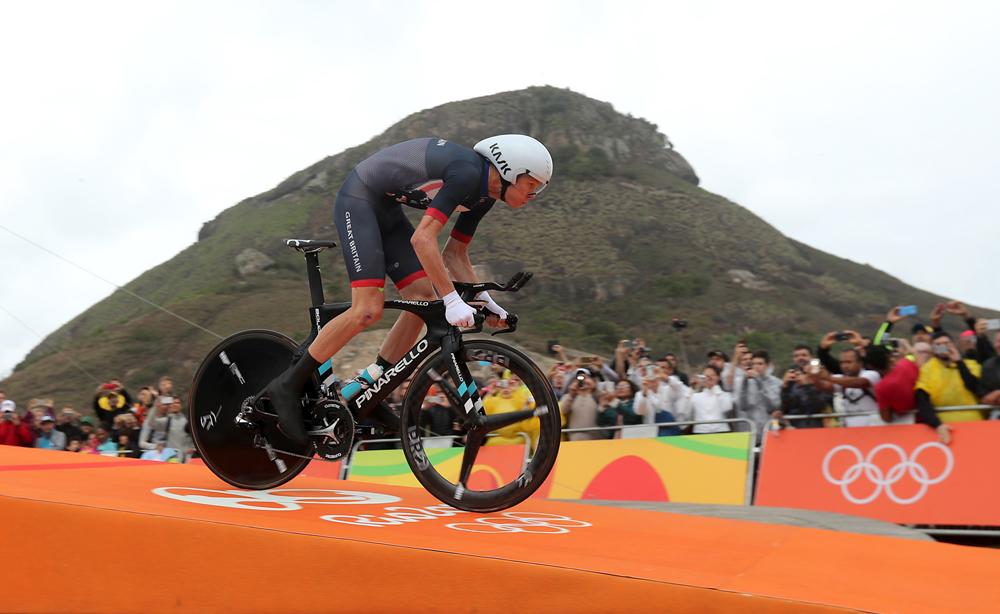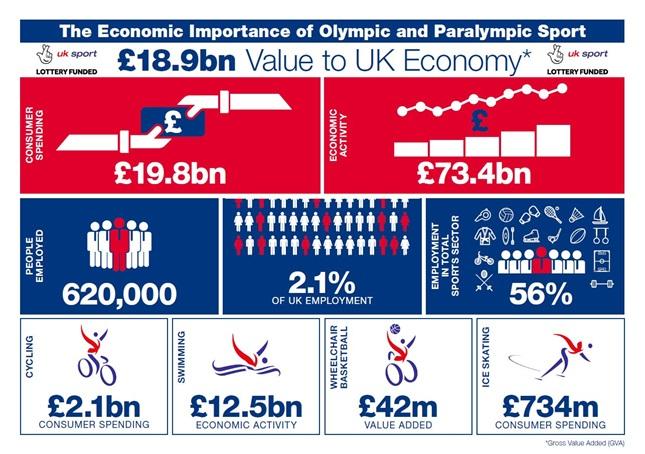see all jobs
Olympic and Paralympic sports worth £19bn to UK economy, study shows

The value of Olympic and Paralympic sports to the UK now stands at £19bn (€21.42bn, US$25.17bn), according to researchers at Sheffield Hallam University.
Using data from the National Accounts – from the Office for National Statistics – academics commissioned by UK Sport found this sector of the sport industry generates consumer spending of £20bn (€22.55bn, US$26.49bn) and provides employment for more than 620,000 people.
The Olympic and Paralympic sports account for more than half of the entire sporting economy, more than one per cent of the entire UK economy and more than two per cent of all employment.
The figures do not include sports such as football and golf, for which the Games are not considered to be the pinnacle of the sports.
The study, The Economic Importance of Olympic and Paralympic Sport, shows road cycling alone is worth £2.3bn (€2.59bn, US$3.05bn), rising to £3.6bn (€4.06bn, US$4.77bn) if the supply chain is included, and supports 75,000 jobs.
The Paralympic sport sector is valued at more than £2bn (€2.25bn, US$2.67bn), with wheelchair basketball worth £42m (€47.35m, US$55.64m).
And with three months to go until the Winter Olympics in PyeongChang, winter sports are shown to be increasingly popular in the UK, with ice skating worth £400m (€450.9m, US$529.9m).
If the wider supply chain is included, the value of the sector – Gross Value Added (GVA) – increases from £19bn to £30bn (€33.82bn, US$39.74bn).
This level of economic activity makes Olympic and Paralympic sport larger than other sections of the economy such as the water industry, or the agriculture, forestry and fishing sector.
“The government’s strategy for sport, Sporting Future, requires organisations to consider not just how they contribute to the nation’s health or wellbeing, but to the economy as well,” said Professor Simon Shibli, who co-authored the report with fellow sports expert Themis Kokolakakis.
“We hope this report is a useful first step in addressing the research needs of the fifth outcome area in Sporting Future – economic development.”
Minister for sport and civil society Tracey Crouch MP said: "Sport is hugely important to British life. It strengthens communities, increases physical and mental health and, as this report clearly shows, makes an enormous contribution to our economy."
Findings also suggest that British success at the Beijing, London and Rio Games sparked an upsurge in economic activity in sports such as running, cycling and swimming, with employment generated by Olympic and Paralympic sports now larger than the entire sports sector in 2004.
UK Sport chair Dame Katherine Grainger added: “We know our Great British medals in recent and future years can help to inspire the nation to get active and take up sports and exercise, whether in a local parkrun or aiming for an Olympic podium.
“That’s why investing in our medal success through the National Lottery is also investing in the health and wealth of the country as a whole.”
More News
- News by sector (all)
- All news
- Fitness
- Personal trainer
- Sport
- Spa
- Swimming
- Hospitality
- Entertainment & Gaming
- Commercial Leisure
- Property
- Architecture
- Design
- Tourism
- Travel
- Attractions
- Theme & Water Parks
- Arts & Culture
- Heritage & Museums
- Parks & Countryside
- Sales & Marketing
- Public Sector
- Training
- People
- Executive
- Apprenticeships
- Suppliers

















































